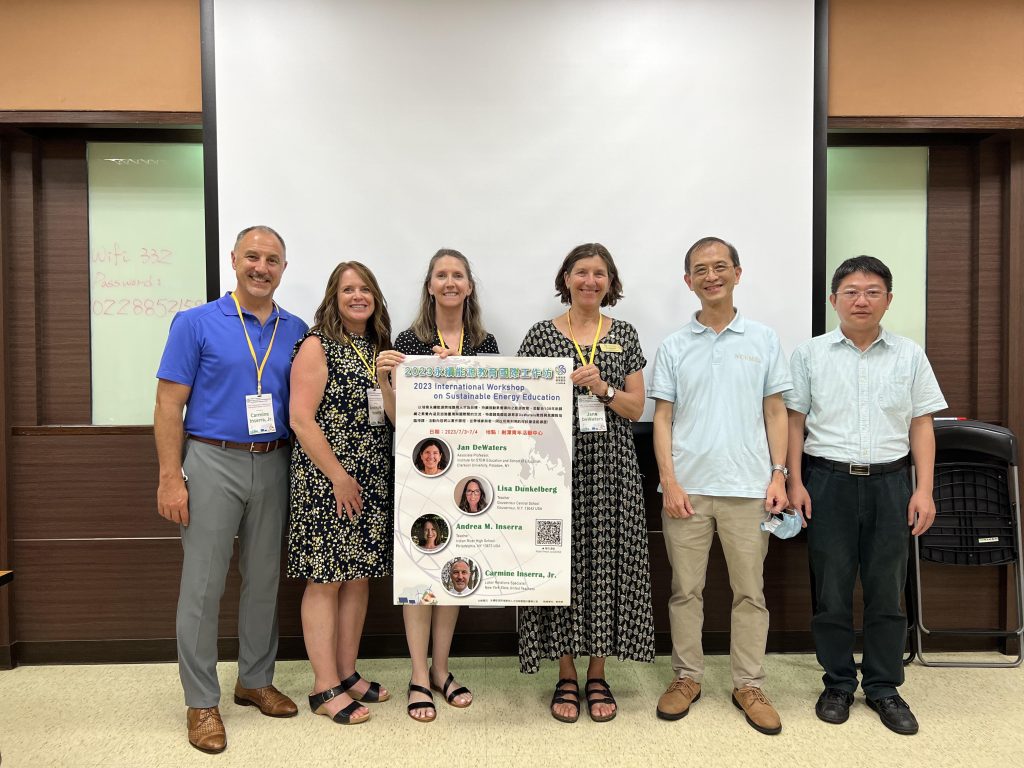Jan DeWaters, associate professor in the Institute for STEM Education and the School of Engineering at Clarkson and three New York State high school teachers recently returned from Taiwan where they gave a workshop on project-based Energy Education at the Chientan Youth Activity Center in Taipei.

DeWaters, Lisa Dunkelberg of Gouverneur High School, Andrea Inserra from Indian River High School, and Carmine Inserra, Jr. a Labor Relations Specialist with New York State United Teachers led the two-day workshop which was co-sponsored by the Ministry of Education’s Clean Energy System Integration and Applied Talent Cultivation Program Office and the National Central University of Taiwan in Taoyan Cit
The workshop was a follow-up to a previous week-long workshop that DeWaters and her team delivered, at the National Cheng Kung University (NCKU) in Tainan City in 2019. It is one component of a multi-year initiative by Taiwan’s Ministry
of Education, to promote energy literacy, energy education, and green energy
technology development, in an effort to shift Taiwan toward a more energy-
secure future.
The workshops were attended by about 50 middle and high school teachers from all over Taiwan. The Clarkson team had assistance from 25 graduate student teaching assistants, who worked closely with teachers to help facilitate the hands-on activities. The focus was on hands-on, project-based and place-based collaborative learning. The group taught the workshop with a series of talks and activities where teachers played the role of their students so they could fully experience the lessons. Those included researching renewable energy resources in Taiwan and then presenting their findings. The teams then designed and built passively-cooled model homes out of
a variety of materials. Their models were tested to measure the internal temperature change once they brought them from the air-conditioned classroom out into the 98-degree heat and then they were given the opportunity to revise their designs for re-testing. The hope is that the teachers will incorporate aspects from the workshop into their own teaching. Feedback from the workshop was positive, both in terms of energy content and teaching strategies, as active collaborative learning pedagogies are just beginning to take hold in the Taiwan education system.